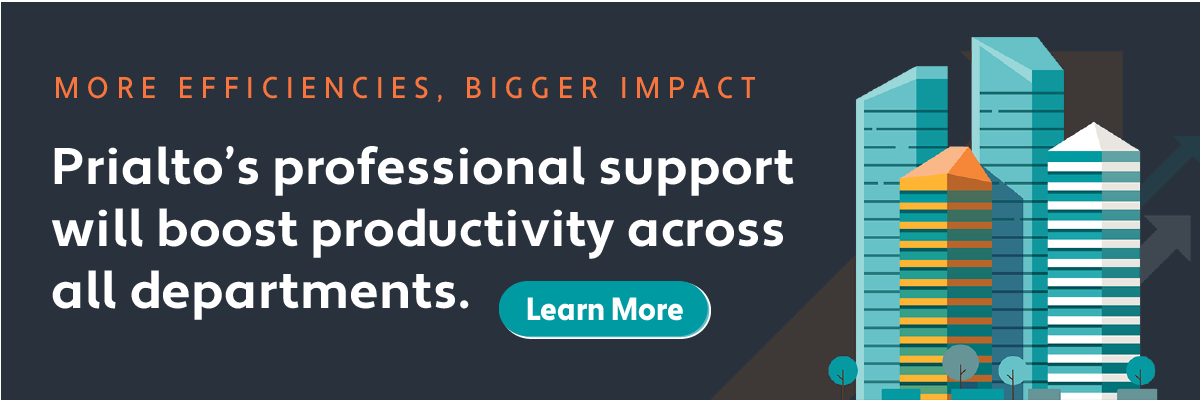Failure.
It's such an unpleasant thought that the word is enough to make you cringe.
No one wants to fail at anything—a relationship, a sport, or a business. The fear of failure often leads people to hide mistakes because we have become accustomed to being blamed when we do something wrong. Even worse, that fear can keep individuals and businesses from taking risks—no one wants to take the blame for failure, so they play it safe.
But what if defeat is the stepping stone to success? How can we make it safe to fail to not miss out on the potential benefits of brilliant risk?
A Mistake is Not Failure
The Snappywords dictionary definition of failure is "lack of success." Failure in business means an idea for a product or service is proven to be unviable. This is not the same as making a mistake. A mistake is an errant behavior that you can correct. Failure means success is not possible. Can there be good failures? Absolutely. Some would say that every business failure is a good failure. Here's how you can turn failure into a competitive advantage.
End the Blame Game
"Failure and fault are virtually inseparable in most households, organizations, and cultures," said Amy Edmondson, professor at Harvard Business School. "Every child learns at some point that admitting failure means taking the blame. That is why so few organizations have shifted to a culture of psychological safety in which the rewards of learning from failure can be fully realized."
Fault finding and blame can be bad for business. "Groups and organizations with a rampant culture of blame have a serious disadvantage when it comes to creativity, learning, innovation, and productive risk-taking," said USC business school professor Nathanael J. Fast. "That's why creating a culture of psychological safety is one of the most important things a leader can do."
In fact, a 2017 Gallup survey found that when leaders increase psychological safety, it makes employees more engaged in their work and can lead to a 12 percent increase in productivity and a 27 percent reduction in turnover.
Failure as a Competitive Advantage
Astro Teller, the head of Google's X "moonshot" division, agrees that getting beyond fear of being blamed for failure requires us to go against human nature. "Everyone worries, 'What happens if I fail? Will people laugh at me? Will I get fired?'" he said. "At the end of the day, we all have to pay the bills and want the people around us to think highly of us. So, it's human nature to gravitate toward the paths that feel psychologically safe."
Teller and his team create psychological safety by rewarding failures. He gives bonuses to teams that abandon unviable projects. "We keep people brave by rewarding teams that kill their projects," he said. "We see killing projects as a normal part of doing business because it means we can go faster and take on ideas that are more promising." After a team of 30 engineers ended a project after working on it for two years, Teller gathered the entire company and said, "Thank you! By ending their project, this team has done more to speed up innovation at X this month than any other team in this room."
The X team also encourages "pre-mortems" to point out risks that could lead to failure as soon as possible. "Wouldn't you rather know where failure is likely to happen before something gets off the ground?" Teller asked. "We're trying an experiment right now to encourage teams across X to speak up about things that might someday kill a project or slow it down — and make it business-as-usual for managers to hear and respond to these things."
A 2015 survey of Google's workforce found that psychological safety was the most important factor in team success.
Blame vs. Blameworthy
We are so programmed to blame someone or something for failure that we do it even when it isn't necessary. Edmondson surveyed executives asked how many failures are due to poor leadership—they answered 2-5 percent. Then she asked the same group how many of these failures are blamed on leaders, and they said 90 percent.
Research by Fast and Stanford Business School Professor Larissa Tiedens found that blame is contagious. Their experiments showed that individuals who watched someone blame another for mistakes went on to do the same with others. What Fast and Tiedens call the "blame contagion" is what can quickly create that culture of "rampant blame" that can stifle growth.
Failure as a Competitive Advantage Leaders Can Foster
Teams that fail well innovate faster. That's Astro Teller's point. Managers should realize that "We're in the discovery business, and the faster we fail, the faster we'll succeed," Edmondson said. She cites product design powerhouse IDEO's slogan, "Fail often and succeed sooner." When Adobe was concerned about the pace of innovation at the company, it launched a Kickbox program that paid employees $1,000 each to submit ideas for new products and features. There was no penalty if the projects didn't go anywhere.
"Only leaders can create and reinforce a culture that counteracts the blame game and makes people feel both comfortable with and responsible for surfacing and learning from failures," Edmondson said. For more information about how to be a successful leader, download the ebook, "The 7 Skills of Highly Effective SMB Leaders."
About the Author: Bill is Prialto's senior content marketing manager and writes about the future of work and how businesses can be more productive and successful. His work has appeared in the World Economic Forum Agenda blog and CIO magazine.

